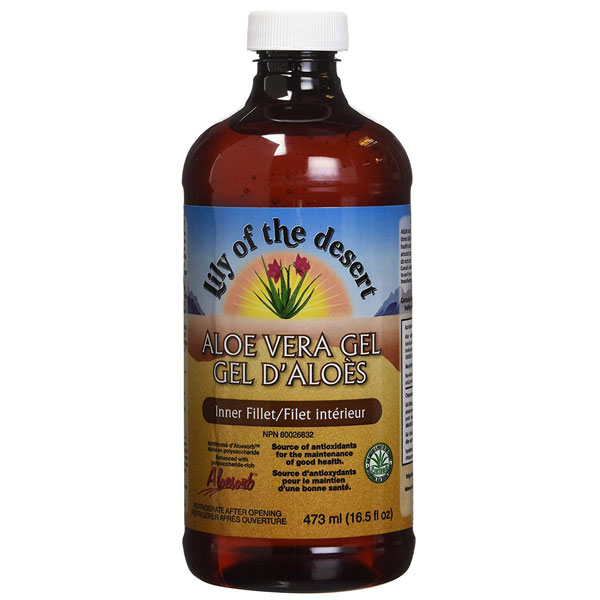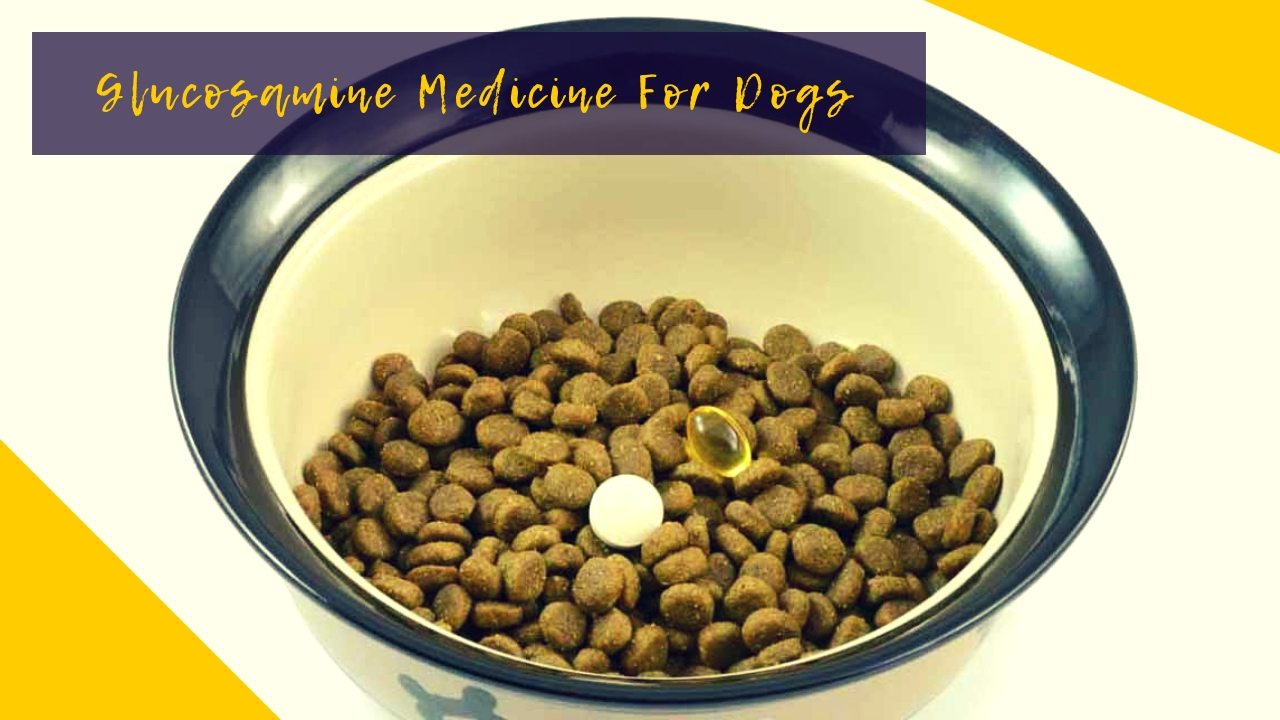Sucralfate, also known by its brand name Carafate, is given to dogs to help prevent ulcers and damage to the lining of the stomach and intestines. It acts as a local mucosal adherent. It can be used to prevent all types of ulcers, including stomach, duodenal, colonic, esophageal, intestinal, and oral ulcers, including those that develop as a side effect of taking NSAIDs. Ulcers can also develop as a result of the ingestion of toxins, liver disease, mast cell tumors, IBS, and of course, stress (dog experience it too!)
Ulcers and GI erosion treatable with sucralfate might also be triggered by toxic chemical ingestion, renal failure, liver disease, stress (trauma, sepsis, shock, and burns), carcinoma, mast cell tumors, inflammatory bowel disease, hypoadrenocorticism, and anything that causes too much gastric acid.
Ulcers can develop in dogs and in human as a result of long-term use of medication and for other reasons. Essentially, they happen because the body lacks the natural resource it should have to protect itself from naturally occurring acid. Sucralfate works by creating a paste when it binds with those acids, which provides protection to the area. This action is sometimes referred to as a “band aid” effect because cover is provided to the affected area so it can heal – much the same way a Band-Aid bandage would work.
Sucralfate creates a sticky, viscose gel barrier over an ulcer or ulcer-in-progress and giving it time to heal without exposing it to any further stomach acid. It might also improve a dog’s gastric environment by absorbing pepsin, stimulating prostaglandin E and mucous secretion, buffering hydrogen ions, increasing bicarbonate secretion, and binding epidermal growth factor.
The medication tends to be local instead of systemic and it has no effect on the output of gastric acid or enzymes.
Sucralfate, like many drugs originally designed for human use, has not been officially approved by the FDA for use in animals. However, licensed vets are able to prescribe and provide advice on taking it “off label.”

Sucralfate is considered a relative safe medication to give to dogs and has very few side effects. The most common that occur include constipation, diarrhea, difficulty breathing, and hypophosphatemia, which have only been seen in a small percentage of users. Sucralfate can slow the GI tract and decrease the speed of gastric emptying.
It is possible for a dog to have an allergic reaction to sucralfate. If you notice any symptoms of a reaction, including rash, hives, itching, or anything else unusual, it’s important to contact your vet right away. Allergic reactions are rare.
There is an extremely low risk for overdosing on sucralfate because the drug is not easily absorbed. In fact, some lab animals have been exposed to very high doses as much as 50 times the recommended amount and survived. If you suspect your dog has overdosed on sucralfate for whatever reason, you might notice the following symptoms:
You should contact your vet if you suspect an overdose to be the case.
It’s still important to keep this and other drugs out of the reach of pets and children.
There are instances in which a dog should not take sucralfate. It might affect the absorption of other drugs and should be administered separately from any other drugs your dog is taking. This is especially true in cases when NSAIDs, fluoroquinolones, H2 receptor antagonists, digoxin, levothyroxine, ketoconazole, tetracyclines, penicillamine, phenytoin, warfarin, or cimetidine fat soluble vitamins are being used.
Many of these warnings and indications are based on human use of the drug and will not be a problem when giving sucralfate to a dog. However, it’s important you let your vet know if your dog is taking anything or remind your vet of other drugs or health concerns your dog has.
Sucralfate is typically administered by mouth about an hour or two before your dog eats. Dosage varies based on your dog’s size, age, and general health. With Sucralfate, like all drugs, it’s important to carefully follow your vet’s dosage instructions.
The guidelines we’ve provided are intended to help you check your vet’s dosage recommendation against what’s considered normal. If you notice a discrepancy, you should contact your vet and discuss his or her reasoning for dosage. Never adjust the dosage your vet has recommended without first speaking to him or her about the issue.
In general, dogs are given 1 gram of sucralfate every eight hours when they are larger and 0.5 grams every eight hours when they are smaller. Again, this is a general guideline and you should speak to your vet about questions or concerns.
Sucralfate has the greatest effect when administered in liquid or suspension form. Tablets are water soluble and can be crushed to increase effectiveness. If you miss a dose, you can give it late, but not too late. You shouldn’t give two doses simultaneously, so if you’re within a few hours of your dog’s next dose, skip the missed dose and move on with the usual dosing schedule.
Long-term use of sucralfate is not recommended for dogs with problems of bones, kidneys, and brain. This is due, in part, to the fact that long-term use of sucralfate can cause a build-up of aluminum in the body, which leads to accumulation in the brain or weakening of the bones.
Sucralfate can interfere with other medications your dog is taking. If you are giving your dog anything else, make sure you give sucralfate two hours before the other medication or supplement. It should be given on an empty stomach and never combined with food. Sucralfate works better in an acidic environment, so it’s not recommended to combine it with H2-receptor antagonists drugs famotidine (Pepcid) cimetidine (Tagamet) ranitidine (Zantac) at the same time. When using both sucralfate and one of the above-listed drugs, you should wait at least 30 minutes after the dosage of sucralfate to give the other medication.

Stomach ulcers are one of the most common health issues faced by humans, but they are less common in dogs. Still, they occur.
Dogs naturally have a stomach that is coated with a thick layer of mucus. This protects it from the acidic digestive fluids that break down food. An ulcer forms when this protective coating has a hole in it or breaks down. There can be several causes of this breakdown.
One of the reasons the protective coating breaks down is because it is exposed to too much acid. Extra acid might develop because of exposure to certain drugs, including non-steroidal anti-inflammatory drugs (NSAIDS) or high-dose steroids. Ulcers can also form as a complication from liver or kidney disease or because of certain types of cancer. In some cases, ulcers are considered idiopathic, which means there is no exact cause ever determined.
Dogs are also at risk for ulcers outside of the stomach, especially in the esophagus and the duodenum. These can cause blood to appear in the dog’s vomit or feces.
Symptoms of ulcers can vary based on the cause and the location of the problem. If your dog has developed an ulcer, you might notice:
Though you and your vet might suspect your dog has an ulcer based on symptoms and the overall situation, diagnosis of an ulcer usually requires an endoscopy, which is an examination that uses a tube with a camera attached to it that is inserted through the mouth and down into the stomach.
Your dog will be sedated and given anesthesia during this procedure, which always comes with its own set of risks. This is why vets sometimes try to treat a health concern as an ulcer without making an official diagnosis.
Your vet might also be able to draw the conclusion of the presence of an ulcer by using:
Sucralfate treatment has minimal side effects and can help with overall discomfort, so it might not be necessary to get a confirmed diagnosis of an ulcer before moving forward with treatment. If there is an ulcer it will help to heal it and if there isn’t an ulcer it will have no effect at all, provided your dog’s system is able to tolerate it.
Basically, first-line treatment of an ulcer is simple and relatively risk-free, more so than getting an official diagnosis, so you might as well try it before putting your dog through an invasive examination, or so may vets reason.
The goal when treating an ulcer is to protect it from further damage and give it a chance to heal. The drug treatment for ulcers in dogs is typically a blend of H2-receptor antagonist medications, including famotidine, cimetidine, and ranitidine, combined with sucralfate, which is a cytoprotective binding agent.
In addition to using Sucralfate to help your dog’s ulcer(s) heal, there are also other things you can do to reduce the risk for ulcers and to help them heal as quickly as possible when they do occur.
To goal of treating canine ulcers with supplementary treatments in addition to the recommendation of your vet is to use something as gentle as possible and to strengthen your dog’s natural immunity. Natural treatments aren’t right for all dogs, just as standard medications aren’t either. The important thing is to speak to your vet about your options and work together to create the best treatment plan for your dog.

Some of the remedies that dog owners have used to alleviate the discomfort of an ulcer for their dog include herbs such as:
Other home remedies for easing ulcer symptoms include Manuka honey and cabbage juice.
NEVER give your dog anything, natural or otherwise, that hasn’t been approved after a review of the specific product by your vet.
It’s important to follow the advice of your vet and discuss any concerns with him or her when given prescription medication for your pet. The same is true for holistic, natural, or complementary therapies. Let your vet know about anything you are doing or intend to do to help your dog cope with ulcers. This way he or she can make adjustments in treatment or advise you of any risks you might not be aware of.
Regardless whether you opt to treat your dog’s ulcer with sucralfate, natural remedies, or a blend of both, it’s important to not let the problem go unattended. An ulcer is your dog’s body’s way of saying it needs help protecting itself. Its natural defenses are weakened and unless something is done to remedy the problem, more health issues can be expected.
The complications linked to ulcers in dogs varies based on the type of ulcer it is, the dog’s overall health, and what is done to ease the symptoms. For instance, if your dog’s ulcer is causing him or her to have diarrhea or vomit and it leads to dehydration, the problem can become very serious. Your first line of defense is to ensure your dog stays dehydrated, get the vomiting or diarrhea under control, and then treat the ulcer. It might also be necessary to treat other symptoms as secondary conditions when dealing with an ulcer, such as rapid heart rate, abdominal swelling, or anemia.

The goal is to get your dog’s system back into balance and able to manage on its own as much as possible – something that might not be possible at all, but will be even harder if you let symptoms go unattended for any length of time.
In addition to causing long-term complications if left untreated, ulcers are just downright unpleasant for dogs. As humans, we already understand how miserable it is to have digestive distress. Luckily, we have ways to communicate our problems to our doctors and to look for ways to make ourselves more comfortable. We’re in control of our health.
Your dog is relying on your to help him or her feel better. He or she is unable to make a trip to the vet without you and cannot talk about feelings and symptoms from day-to-day. You need to act as your dog’s advocate when you know there is something off.
It’s a good idea if you suspect your dog has an ulcer or any other health problem to start a health log. This way you can monitor symptoms from day-to-day and determine what treatment works and what doesn’t. This also gives you a chance to track whether or not your dog seems to be reacting to things like medication, food, or his or her environment. You can even take your dog’s health log with you when you visit the vet to discuss the issue with ulcers or for his or her annual checkups.
This also makes it easier to make a diagnosis of the problem. Chances are your vet will be able to determine if your dog has developed an ulcer, even without an invasive examination, but there might be additional issues occurring simultaneously. Keeping a close eye on various symptoms and writing down what you notice can help your vet evaluate the situation and allow your dog to “communicate” about what’s happening when he or she isn’t in the vet’s office.
You are your pet’s best advocate and it’s your responsibility to speak on his or her behalf. If you are concerned about any problems that might be occurring or you have questions about recommended treatment, there’s nothing wrong with asking questions and sharing how you feel. Your pet will be better off for it!
Product Image | Product Name | Buy Now |
|---|---|---|
Pill Cutter Splitter | ||
Lily Of The Desert Aloe Vera Gel | ||
Wedderspoon Raw Premium Manuka Honey |
Whether or not to give your dog sucralfate to treat issues with an ulcer or other digestive problems is a decision that needs to be made by you and your vet. It’s a relatively safe drug with few interactions, but giving any drug to your dog is not a decision that should be taken lightly. You need to understand any potential side effects and know that it’s always better to let your dog’s system not rely on drugs unless absolutely necessary – and in many cases, it is absolutely necessary.
Because the side effects are minimal and long-term issues are considered null, most owners choose to give their dogs sucralfate when trying to manage a problem with ulcers. It prevents your dog from feeling uncomfortable and gets the problem under control as quickly as possible. Any potential side effects are worth the risk because the problem your dog is dealing with is potentially more damaging than how he or she might react to sucralfate.
If you have concerns or questions about sucralfate and the potential risks, you should discuss them with your vet. Most vets are more than willing to work with pet owners to find a course or treatment that benefits the pet and puts the owner at ease.
Most vets take a more nonchalant attitude toward sucralfate because it has minimal effects aside for helping with ulcers. In most cases, it will be one of the first therapies recommended if an ulcer is suspected.








